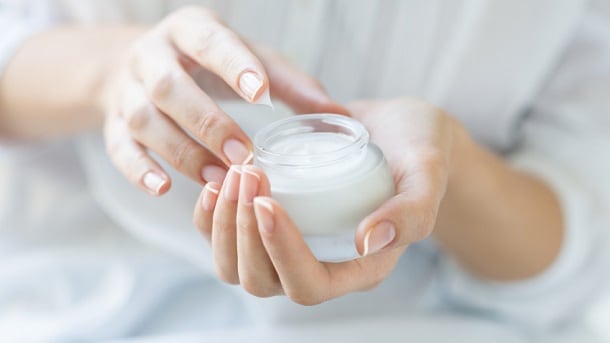The study links maternal serum concentrations of vitamin B3 (niacin) to the risk of eczema in the mother’s children.

A lack of vitamin B, particularly B3, has already been implicated in the development of such allergy-related conditions as asthma and inflammatory bowel disease.
Nicotinamide, derived from vitamin B3, has exhibited anti-inflammatory actions in previous studies and has shown benefits to those with inflammatory skin conditions.
Certain countries in Europe have mandatory fortification with vitamin B3 like the UK in the case of bread. The vitamin is also an ingredient in some energy drinks.
Study results
The study, carried out at the University of Southampton, looked at the amount of nicotinamide in 497 pregnant women.
In addition, associated metabolites such as tryptophan and kynurenine were monitored in late pregnancy and were assigned an odds ratio of developing infantile atopic eczema.
Rates of eczema in the offspring were also studied at ages six and 12 months.
Results found that maternal nicotinamide and related metabolite concentrations were not linked with offspring atopic eczema at age six months.
However, the researchers associated the higher levels of nicotinamide with a 30% lower chance of developing atopic eczema at 12 months.
An even stronger association with higher levels of anthranilic acid, a tryptophan metabolite, was observed.

"Nicotinamide cream has been used in the treatment of eczema but the link between the mother's levels of nicotinamide during pregnancy and the offspring's risk of atopic eczema has not been previously studied,” said Dr Sarah El-Heis, study lead author from the University of Southampton.
“The findings point to potentially modifiable influences on this common and distressing condition."
Hygiene hypothesis
The cause of eczema is largely unknown but is thought to be a combination of genetic and environmental factors.
The hygiene hypothesis has been implicated in the onset of eczema and points to the non-exposure to bacteria and other immune system regulators as a cause of asthma, eczema, and other allergic diseases.
Genetically, a number of genes have been identified that are thought to play a part in eczema development. These include filaggrin and IL4-KIF3A.
"More research is needed to investigate this interesting association, but the findings are further evidence of the potential benefits of eating a healthy balanced diet during pregnancy," said Professor Keith Godfrey, director of the NIHR Southampton Biomedical Research Centre in Nutrition.
Source: Clinical & Experimental Allergy
Published online ahead of print, DOI: 10.1111/cea.12782
“Higher maternal serum concentrations of nicotinamide and related metabolites in late pregnancy are associated with a lower risk of offspring atopic eczema at age 12 months.”
Authors: S. El-Heis et al.
